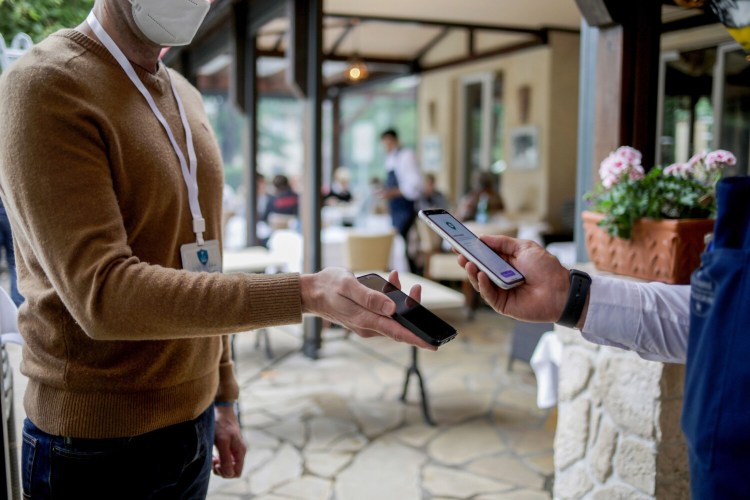It’s getting harder to be a vaccine holdout in Europe and continue with life as usual.
As governments battle another wave of the outbreak, new restrictions are being introduced, many aimed at the unvaccinated. That’s adding to the pressure on those who’ve resisted the shot so far.
Germany is proposing to limit access to the workplace to people who are inoculated, recovered or provide a negative test, and those who have refused shots are increasingly banned from cafes and hairdressers. The country, which has seen a surge in cases, has a vaccination rate below that of Italy, Spain and Portugal.
Ireland this week extended vaccine certs beyond restaurants and bars to include cinemas and theaters. And Austria set a new bar for tough measures with a lockdown on the unvaccinated, restricting their movements to work and shopping for essentials.
The moves mark a dramatic escalation in the campaign to increase vaccination rates, an effort that’s been given fresh impetus by the latest surge in COVID cases.
Alongside measures in Germany and elsewhere, some regional leaders in Italy want authorities to replicate the Austrian model. They’ve asked that if any new restrictions are introduced, they should apply only to the unvaccinated. Czech authorities are considering a similar clampdown.
Across the continent, governments have been slapping more and more restrictions on people who haven’t been inoculated in recent months, threatening fines and even suspending some health workers. The measures led to protests in a number of countries over the summer, some of which turned violent, as well as court battles.
In Austria, an anti-vax group won seats in a regional parliament in elections in September, a sign of how resistance is deeply embedded in some parts of society.
But for governments, toughening the rules is a necessary response amid repeated virus flare-ups.
Germany’s infection rate keeps setting record highs, with more than 50,000 new cases recorded on Thursday. In Croatia, where fewer than 50% of the population is fully vaccinated, deaths have soared recently.
“The fourth wave is hitting our country with full force,” German Chancellor Angela Merkel said Wednesday. “We urgently need to make progress on vaccinations.”
That’s creating a difficult situation for politicians, who are trying to get their countries through the pandemic without having to resort to another round of damaging widespread lockdowns.
And it’s not clear they’ll be able to avoid such drastic options. U.K. Prime Minister Boris Johnson this week warned that another lockdown can’t be ruled out this winter.
“History shows we cannot afford to be complacent,” Johnson said during a televised press conference.
That history lesson includes a warning shot over the summer, when the delta variant caused a spike in numbers in the U.K. and a number of European Union countries.
That surge ultimately proved relatively short lived, but countries may not be so lucky now as colder weather, along with more people spending time indoors, help the virus spread and take hold.
Waning antibody levels in some vaccinated people could also dramatically set back the virus battle. A number of countries are expanding their booster rollouts to sustain elevated levels of protection against COVID. Austria cut the validity of vaccine certs to nine months from 12 to encourage people to get a top-up shot.
Efforts to boost vaccinations have sometimes stumbled. Slovenia’s government faced protests after it tried in September to force unvaccinated public workers to work from home. The measure was ultimately halted by the country’s constitutional court.
Authorities have also been forced to revisit their COVID testing strategies. Germany reversed a decision to scrap free rapid tests and is bringing them back in hopes of getting control of the explosion of cases.
But a negative test won’t buy freedom for the unvaccinated like it did in the summer and early fall. Instead, many places are adopting a model where you have to show proof of vaccination or a recent bout of COVID along with a negative test. Where that’s not possible, big events are starting to get canceled.
That’s the case in Munich, where city officials on Tuesday said there will be no Christmas markets in the city center for the second year in a row. Smaller markets are still possible, for now, for the vaccinated, provided they bring a negative test result. But patrolling such a policy in the heart of Munich would be impossible.
“This is bitter news,” Mayor Dieter Reiter said. “But the dramatic situation in our hospitals and exponential rise in cases leave me no other choice.”
– – –
Bloomberg’s Zoe Schneeweiss, Jan Bratanic, Peter Flanagan and Peter Laca contributed to this report.
Send questions/comments to the editors.



Comments are no longer available on this story